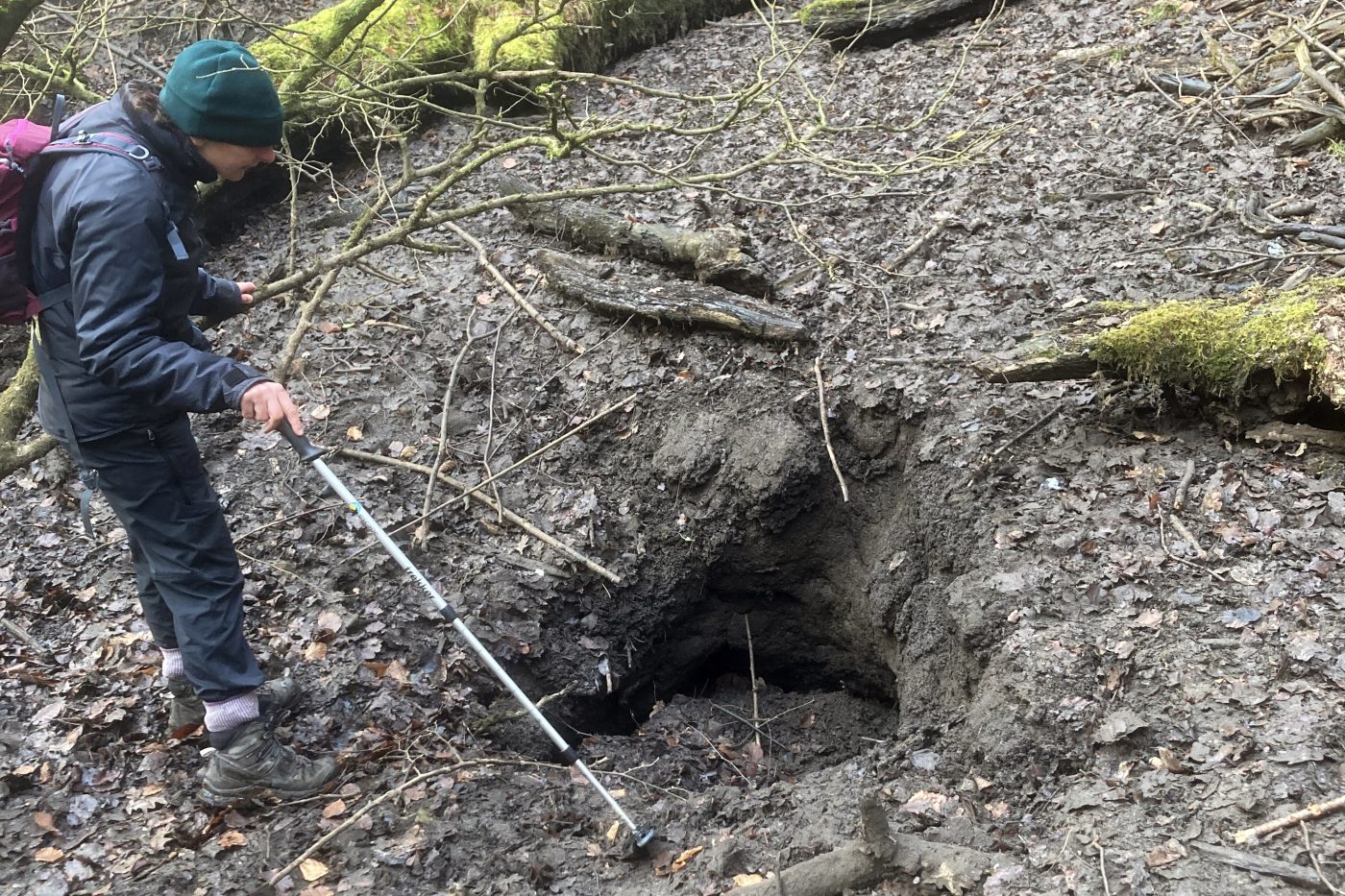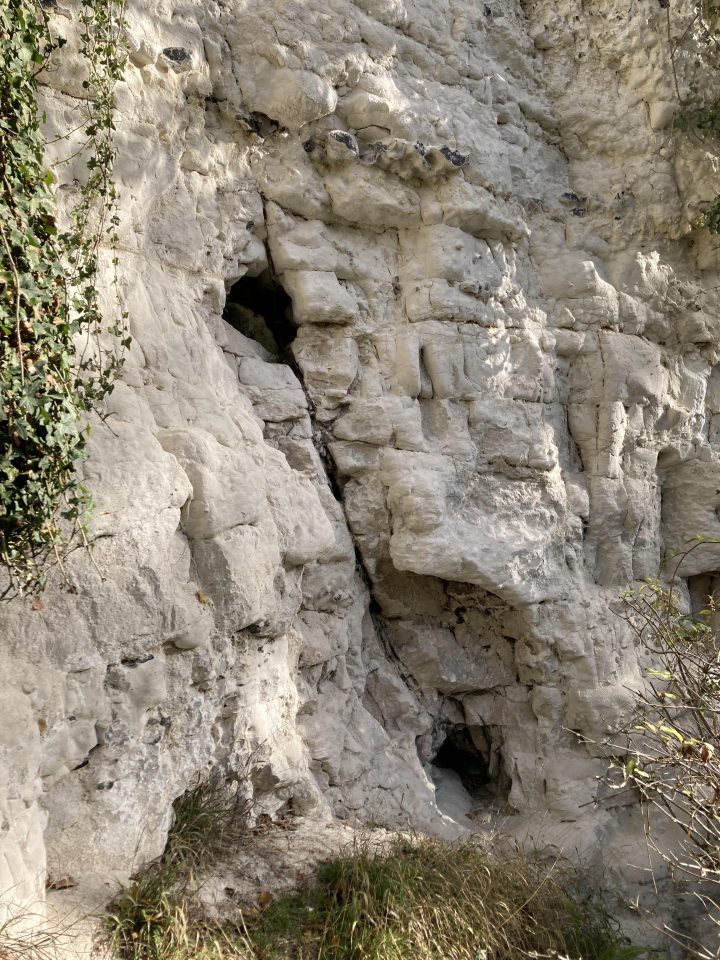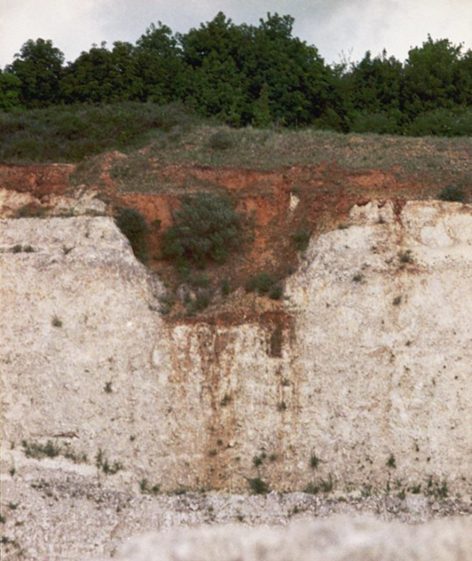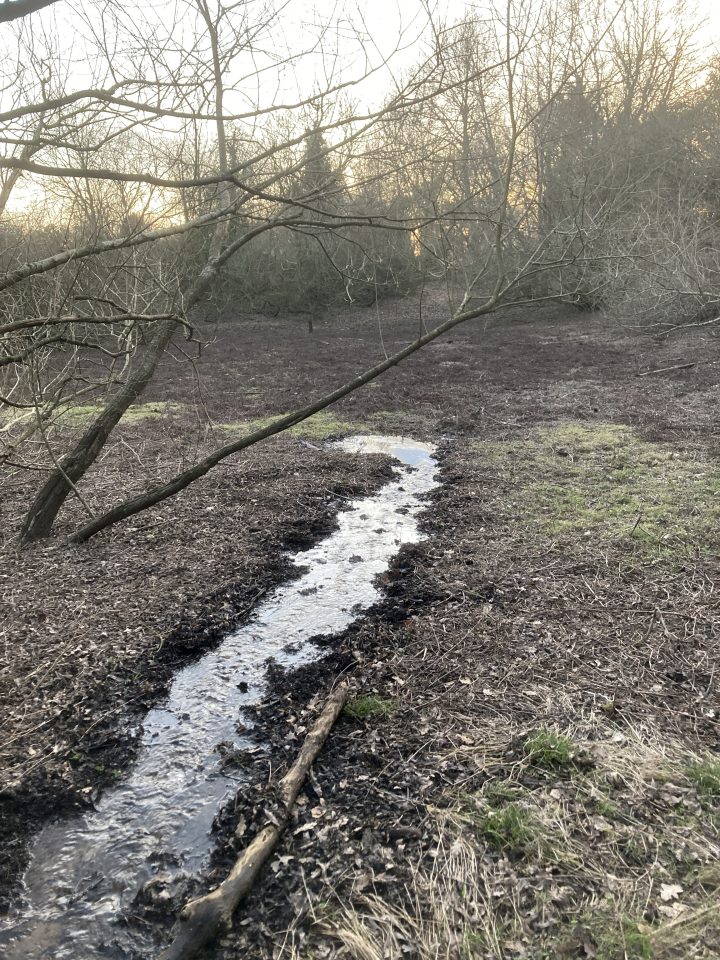New BGS karst report released for Hampshire and Wiltshire
The report details the evidence for karst processes in areas of soluble rocks that have not previously been considered karstic.
10/03/2023 By BGS Press
Karst results from the dissolution of rocks and is usually associated with cave systems and landscapes characterised by rocks sculpted by dissolution, large surface depressions, disappearing rivers and major springs. However, karst processes occur in all soluble rocks, resulting in high vulnerability to pollution. The BGS karst reports provide an overview of the evidence of karst in different regions of England with Cretaceous chalk or Jurassic or Permian limestone geology, where karst is less well known.

Karst conduits in the chalk, Medmenham, Chilterns. © Andrew Farrant.
The next BGS karst report is now available, covering the Wessex Chalk area of Hampshire and Wiltshire. This is not an area that has been considered karstic in the past and there are no known karst caves that can be explored. It is certainly very different from the karst of the Carboniferous-aged limestones of the nearby Mendips, where classic karst features such as Cheddar Gorge and Wookey Hole cave are found.
Karst in the Wessex Chalk area
However, there is a surprising amount of evidence for karst in the Chalk Group rocks of Wessex, with many streams that disappear into the chalk via karstic solution features as well as large springs where water from karst networks is discharged. The karst networks are made up of solutional conduits (voids) that are too small for humans to explore but which nonetheless enable rapid flow of water in the subsurface. This has important implications for pollutant movement and the protection of groundwater resources and ecosystems.

Solution pipe at Quidhampton, near Salisbury, Wiltshire. BGS © UKRI.
Tracer tests in the area have shown that water can travel at velocities of almost 5 km/day over distances of several kilometres. This is very fast for groundwater and similar to the sorts of flow velocities that are seen in classic karst.
The new report provides an overview of the geomorphological and hydrogeological evidence for karst in this area with maps showing the distributions of karst features.
Other BGS karst reports
BGS has karst reports from other areas, including a report on karst in the Jurassic Corallian Group of northern England, where there is substantial cave development and large karst river sinks. Tracer tests have revealed very rapid flow over long distances.
Another report, on karst in the Jurassic limestones of central England, documents many karst stream sinks, with tracer tests demonstrating rapid flow over long, complex flowpaths that cross river catchments.

Chalk stream sink at Swilly Pond near Burnham, Buckinghamshire, at the edge of the study area. © Andrew Farrant.
The karst reports on the chalk of the Chilterns and the North Downs also show strong evidence for karst, for example with many stream sinks associated with the Cretaceous/Palaeogene margin. Stream sinks in this setting are also detailed in the report on the South Downs chalk area, where coastal surveys provide further insights into karstic caves and conduits.
Overall these reports are building a picture of the importance of karst in aquifers that were previously not considered karstic due to their low levels of cave development. They provide a resource for hydrogeologists and others interested in the nature of these unusual karst aquifers that provide vital water resources and sustain rivers and wetlands.
More information
Find more information on karst in these aquifers.
Contact
Email Andy Farrant (arf@bgs.ac.uk)



